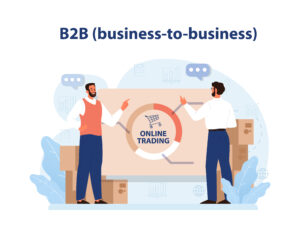In the rapidly evolving world of automotive ecommerce, selecting the right platform for your auto parts business is crucial. The ideal platform can streamline operations, enhance customer experience, and drive sales. Here, we present the top 7 automotive ecommerce platforms, designed to cater specifically to the needs of businesses selling auto parts online.
Introduction to Automotive Ecommerce Platforms
The automotive ecommerce industry is revolutionizing the way businesses and consumers engage with the auto parts market. As ecommerce for automotive parts gains momentum, companies are presented with unprecedented opportunities to expand their reach and streamline operations. The advent of sophisticated automotive ecommerce platforms has not only catalyzed sales but has also enhanced the integration of core business functions such as inventory management, customer service, and digital marketing.
An optimal automotive ecommerce platform goes beyond traditional sales support; it provides a comprehensive suite of tools that enable businesses to offer personalized shopping experiences, manage complex product assortments with ease, and respond swiftly to market demands. By leveraging advanced analytics, these platforms can also offer insightful data, aiding businesses in making informed decisions that drive growth and efficiency. This integration of technology and commerce is essential for those looking to thrive in the competitive landscape of automotive sales.
1. TotalOne – A Premier B2B Ecommerce Platform for Automotive Industry Growth
TotalOne excels with its Swiss-engineered cloud platform, designed to simplify complex business processes and enhance precision and speed. Celebrated for its straightforward usability and rapid processing capabilities, TotalOne is the perfect choice for businesses aiming to expand operations while maintaining low error rates. The platform’s robust infrastructure is capable of handling a vast volume of detailed product data, making it a prime solution for businesses managing extensive inventories of automotive parts and components.
Key Features:
- Seamless Integration: TotalOne integrates effortlessly with ERP and CRM systems, ensuring that all parts of your business communicate smoothly without the need for manual intervention. This integration is vital for maintaining an up-to-date and efficient service, allowing for real-time updates across sales, customer service, and inventory management.
- Intuitive Design: The platform is engineered using Swiss design principles, focusing on power combined with elegance. This makes TotalOne not only powerful but also remarkably easy to use—no technical expertise is required to master its functionality.
- Advanced Data Analysis and Order Management Capabilities: With sophisticated tools for data analysis and order management, TotalOne empowers businesses to optimize their operational strategies and improve decision-making processes based on actionable insights.
Enhanced Automotive Ecommerce Functionality: TotalOne’s automotive ecommerce solution is meticulously crafted for vehicle and vehicle component manufacturers, as well as industrial and mining equipment manufacturers and their suppliers. This specialized focus allows you to:
- Empower Customers: Customers can independently order parts, components, and spares directly from suppliers via the ecommerce portal, which enhances the buying experience and reduces dependencies on intermediaries.
- Manage Service Schemes and Warranties: The platform includes features for online contract management, allowing for efficient handling of warranties and service schemes, thereby improving trust and reliability with your customers.
- Streamline Catalog Management: TotalOne helps provide dealerships and other channel partners with comprehensive, continuously updated product catalogs and pricing, ensuring that all parties have access to the latest information necessary for smooth operations.
Driving Business Growth and Efficiency: TotalOne isn’t just an ecommerce solution; it’s a growth accelerator. By using our platform, you can achieve:
- Scalability: Easily scale your operations to meet increased demand without compromising on performance or customer satisfaction.
- Increased Sales and Improved Costs: Enhance your sales figures while managing costs more effectively, leading to improved profitability.
- Superior Customer Service: Deliver exceptional service that keeps your customers coming back.
- Productivity and Efficiency: Boost your overall productivity and operational efficiency through streamlined processes.
- Market Expansion: Reach new customers and explore new markets with tools designed for global commerce.
- Data Insights: Gain access to critical data and analytics that help you understand market trends and customer preferences.
- Enhanced Brand Image: Build and maintain a powerful brand image that stands out in the competitive automotive market.
2. Shopify Plus
Shopify Plus offers a robust solution for auto parts businesses, facilitating easy setup and a user-friendly interface perfect for high-volume transactions. It’s designed to accommodate rapid scaling, making it a top choice for businesses aiming to expand quickly.
Key Features:
- Extensive App Store: Access numerous integrations that enhance ecommerce operations, particularly useful in the auto parts sector.
- Mobile and Multi-Channel Selling: Supports seamless sales across various platforms, ensuring a cohesive customer experience whether online or in-person.
- Reliable Infrastructure: The platform is built to handle growth, supporting increased traffic and sales without compromising performance.
Shopify Plus adapts well to the specifics of auto ecommerce, offering advanced inventory management and custom pricing tools, which are essential for the auto parts market. This makes it an excellent choice for businesses looking to streamline operations and improve customer engagement in the competitive automotive ecommerce space.
3. Magento (Adobe Commerce)
Magento, known for its scalability and extensive customization options, is ideal for businesses that require a sophisticated, tailored ecommerce solution. It supports intricate catalog management and integrates seamlessly with various systems, providing a versatile platform that enhances personalized shopping experiences.
Key Features:
- High Customizability and Scalability: Magento allows for deep customization to meet specific business needs and supports growth without losing functionality.
- Robust SEO and Marketing Tools: Equipped with powerful SEO optimization and sophisticated marketing tools to help maximize online visibility and customer engagement.
- Omnichannel Functionality: Features like the multi-store capability enable merchants to manage inventories across physical stores and digital platforms effortlessly, offering a unified customer experience across all sales channels.
Additional Considerations:
- Complex Setup: Magento offers broad customization opportunities and multiple integrations, but it also presents a complex technical setup with a steep learning curve, particularly challenging for those without technical expertise.
- Customer Support: Magento does not provide support for its free edition and navigating support within the Adobe suite can be complex due to the vast array of toolkits and services offered.
Magento is particularly effective for automotive ecommerce platforms, where the ability to manage complex product data and maintain consistent service across various channels is crucial. This makes it an excellent choice for businesses looking to scale and personalize their ecommerce efforts in the competitive automotive market.
4. BigCommerce
BigCommerce stands out as a premier ‘hosted’ eCommerce platform, perfect for businesses aiming to excel in multi-channel retailing. With its capability to integrate sales across various online marketplaces and social media, along with a main website, it offers a comprehensive solution for expanding your digital footprint. The platform’s user-friendly interface, coupled with powerful built-in features like inventory management, custom pricing, and product filtering, makes it ideal for businesses of all sizes looking to enhance their online presence.
Key Features:
- Drag-and-Drop Editing Tools: Allows for easy customization of your store’s layout, helping you create visually appealing pages without needing technical skills.
- No Transaction Fees and Competitive Pricing: BigCommerce does not charge transaction fees, making it a cost-effective option for growing businesses.
- Strong SEO Performance and Usability: Designed to optimize your online store for search engines right out of the box, ensuring that your products reach a wider audience.
Additional Insights:
- Visual and Responsive Design: BigCommerce helps you design an attractive and responsive online store, crucial for engaging modern consumers who shop across multiple devices.
- Marketing Tools Integration: The platform integrates with popular marketing tools, enhancing your ability to promote your web store and increase sales effectively.
Considerations:
- Page Load Times: Some users report slower page load times, which can affect your site’s ranking on search engines and require ongoing optimization to improve site speed.
- Customer Service and Technical Support: BigCommerce offers 24/7 customer support via live chat, phone, and email, ensuring that help is readily available whenever you encounter any issues or have questions about the platform.
BigCommerce is particularly suited for auto e-commerce businesses looking to leverage multi-channel sales strategies effectively. Its array of features and strong support system make it a robust platform for automotive ecommerce, helping businesses to manage complex inventories and engage customers across diverse digital landscapes.
5. X-Cart
X-Cart is optimally designed for the auto parts market, providing advanced storefront tools and native search functionalities tailored to manage complex auto parts inventories efficiently.
Key Features:
- Advanced Search Options: Specifically tailored for the automotive market, X-Cart’s native search functionalities handle complex queries, making it easier for customers to find exactly what they need.
- Open-Source Customization: Offers flexible design options, allowing for extensive customization to meet specific business requirements.
- Robust Customer Service and Technical Support: 24/7 support ensures any issues are promptly addressed, and a dedicated project manager is available for authorized users.
X-Cart stands out by delivering these features natively, unlike other platforms that may rely on third-party plugins. This integration reduces the need for constant updates and lowers maintenance costs. Additionally, the X-Cart Storefront API supports custom interface development, enabling businesses to create a unique and compelling online presence while controlling development costs.
Considerations:
- Time-to-Market: X-Cart’s comprehensive solutions may lead to a slower launch compared to simpler platforms like Shopify, but the trade-off comes with greater long-term value and lower overhead.
X-Cart is especially effective for businesses in the automotive ecommerce sector looking for a platform that supports detailed customization and offers robust functionality tailored to the complexities of auto parts sales.
6. WooCommerce
WooCommerce is an ideal eCommerce solution for businesses already using WordPress. It integrates effortlessly into the existing WordPress framework, making it a powerful tool for those looking to enhance their SEO and content marketing strategies.
Key Features:
- Seamless WordPress Integration: As an eCommerce plugin for WordPress, WooCommerce extends the functionality of the world’s most popular content management system.
- High Customizability: Offers strong customization capabilities through access to a wide range of plugins and themes, which allows for tailored website designs.
- Strong Content Management: Leveraging WordPress’s robust content management features, WooCommerce enhances your ability to manage and optimize content effectively.
Pros of WooCommerce:
- Cost-Effective: WooCommerce is free to use, aligning with WordPress’s open-source nature. While hosting and some plugins may incur fees, the base product is accessible without direct charges.
- SEO Advantages: With WordPress’s strong SEO foundation, WooCommerce benefits from well-developed SEO extensions and best practices, boosting your site’s visibility.
Cons of WooCommerce:
- DIY Setup: Setting up WooCommerce involves a hands-on approach, especially when integrating payment gateways and shipping methods.
- Additional Costs for Plugins: While WooCommerce offers extensive functionality, some of the more sophisticated features require paid plugins, which can add to your overall expenses.
WooCommerce is especially suited for automotive ecommerce platforms that rely on strong content marketing and SEO to reach their audience. This makes it a practical choice for auto parts businesses that want to maximize their online presence through effective content management and customization.
7. Volusion – Optimized for Auto Parts Ecommerce
Volusion is well-regarded as a highly specialized ecommerce platform for auto parts businesses. It provides a robust suite of tools designed to effectively manage inventory, boost product visibility, and enhance customer interactions.
Key Features:
- Strong Inventory and Order Management Tools: Volusion offers powerful capabilities to keep track of stock levels and streamline order processes, ensuring efficient operations.
- Built-in SEO and Marketing Tools: The platform includes integrated SEO and marketing tools that help increase online presence and attract more customers.
- Intuitive and Easy-to-Use Interface: Volusion’s user-friendly dashboard simplifies navigation and reduces the learning curve for new users.
Pros of Volusion:
- High Security: Security is a priority for Volusion, which employs robust measures to protect both the store owner and customer data, ensuring safe and secure transactions.
- Effective Dashboard: The platform features an intuitive interface that facilitates easy transitions for users switching from other platforms, promoting a smoother operation.
Cons of Volusion:
- Product Limitations: Volusion does not support the sale of digital products and is not optimized for drop-shipping, which could limit businesses with diverse product offerings.
- Limited Third-Party Support: Unlike platforms like Shopify, Volusion offers fewer third-party integrations, which might restrict the customization and extension possibilities for your store.
Volusion is particularly effective for automotive ecommerce platforms that prioritize security, ease of use, and efficient inventory management, making it an excellent choice for auto parts retailers looking to enhance their online operations.
Why Choose the Right Automotive Ecommerce Platform?
Choosing the right ecommerce platform for automotive parts is not just about managing transactions; it’s about creating an ecosystem that supports all aspects of your business—from inventory management to customer relationships and beyond. The right platform can help you reduce costs, improve customer service, and expand your market reach effectively.
In the rapidly evolving auto parts market, being equipped with a robust ecommerce platform is no longer optional—it’s essential for staying competitive and capitalizing on growth opportunities in the ecommerce for auto parts industry.
If you’re still uncertain about what constitutes an ideal auto parts ecommerce solution, we invite you to read our detailed guide, “How to Choose an Auto Parts Ecommerce Platform for Auto Parts Businesses (2024).”
Conclusion
Choosing the ideal automotive ecommerce platform requires a thorough understanding of your business needs and a careful assessment of each platform’s capabilities to meet those needs. While options like Shopify Plus offer user-friendliness and Magento provides deep customization possibilities, TotalOne stands out as the superior choice for automotive ecommerce.
TotalOne’s robust scalability, comprehensive integration features, and Swiss-engineered precision cater specifically to the complexities of the automotive parts market. Its ability to streamline operations without compromising quality or performance makes it a top-tier option. Consider TotalOne for its holistic approach to ecommerce, ensuring your auto parts business not only meets current market demands but is also well-prepared for future growth and challenges in the digital landscape.
Are you ready? Schedule a Free Demo Today!



